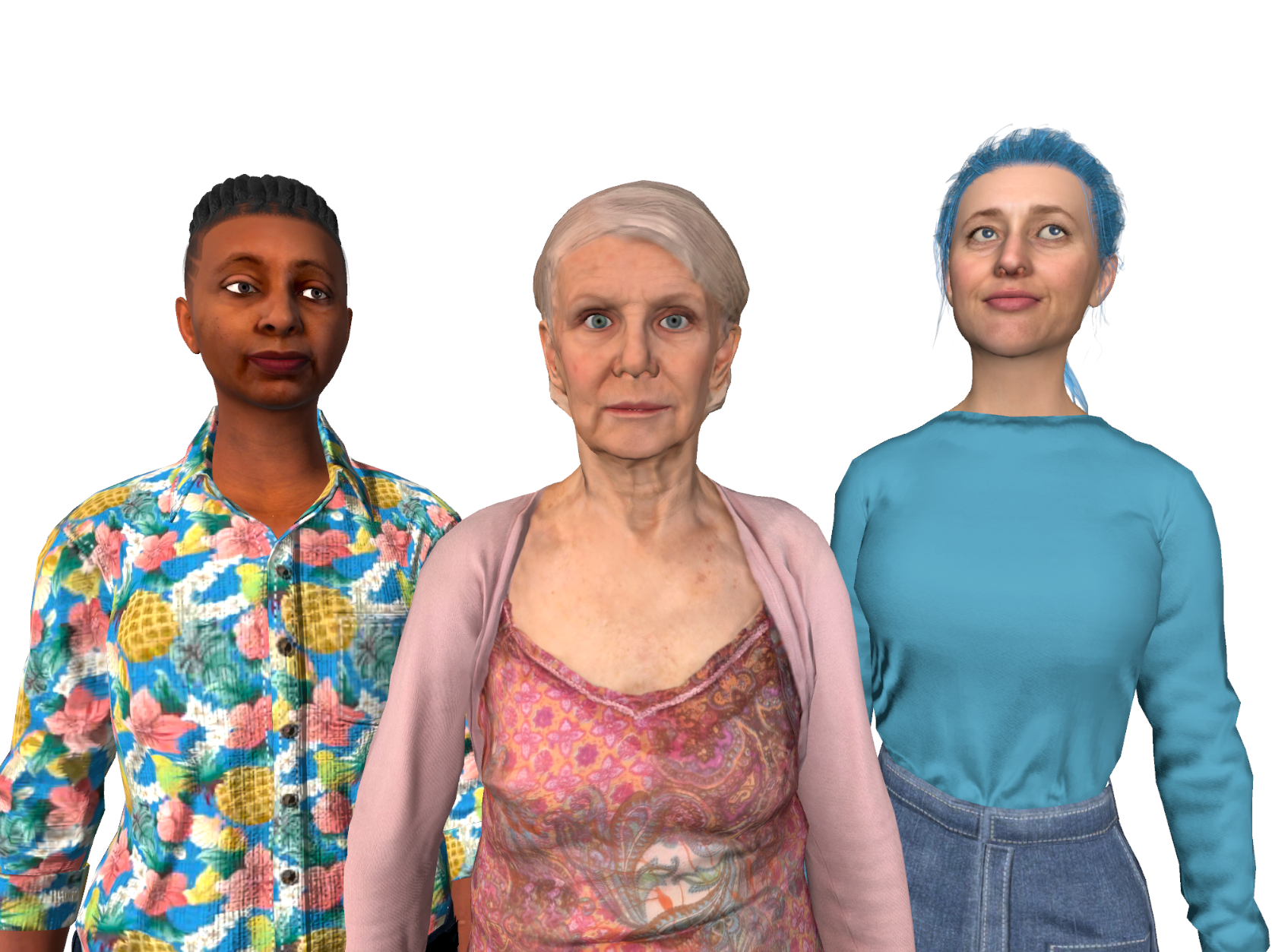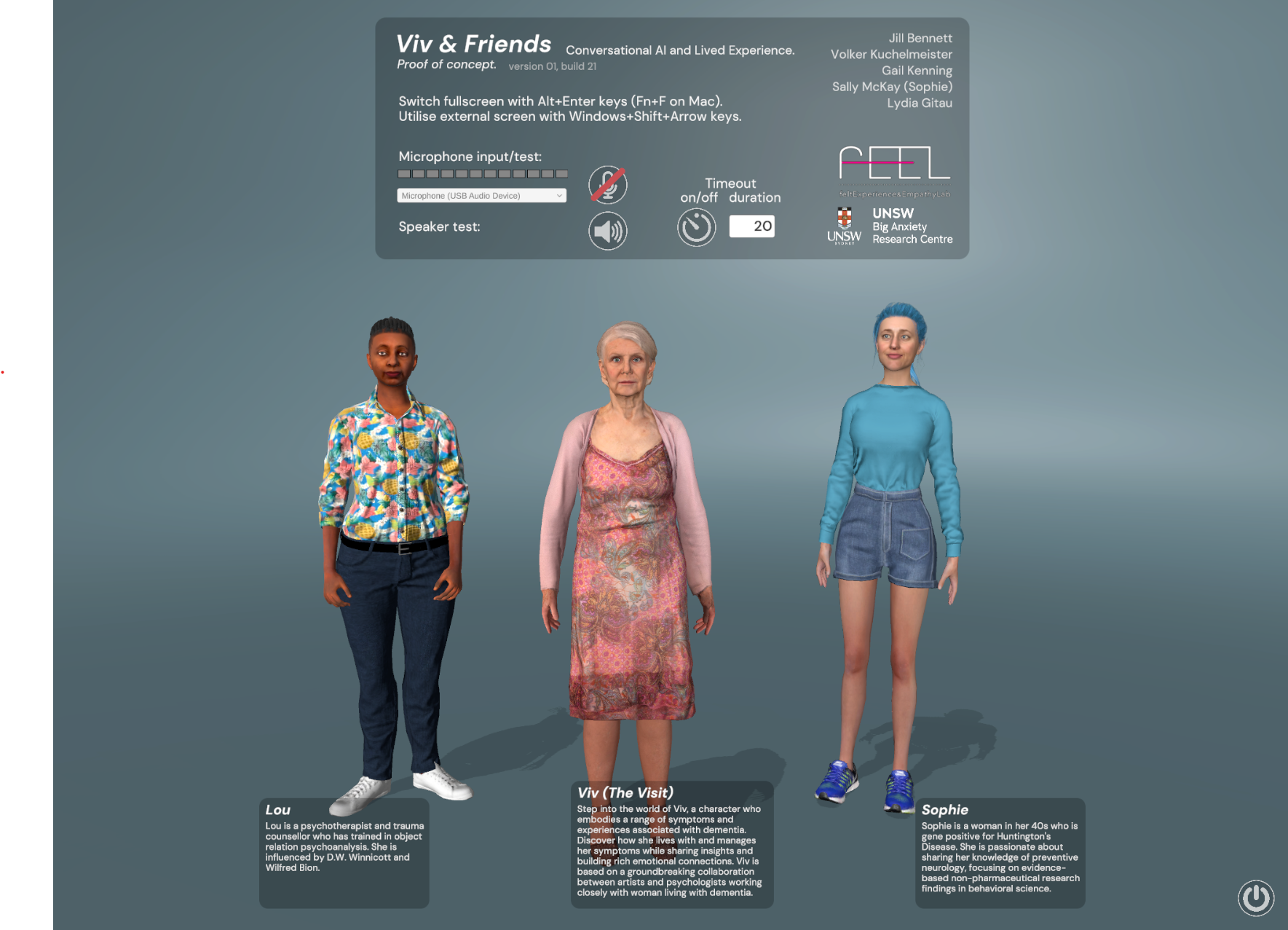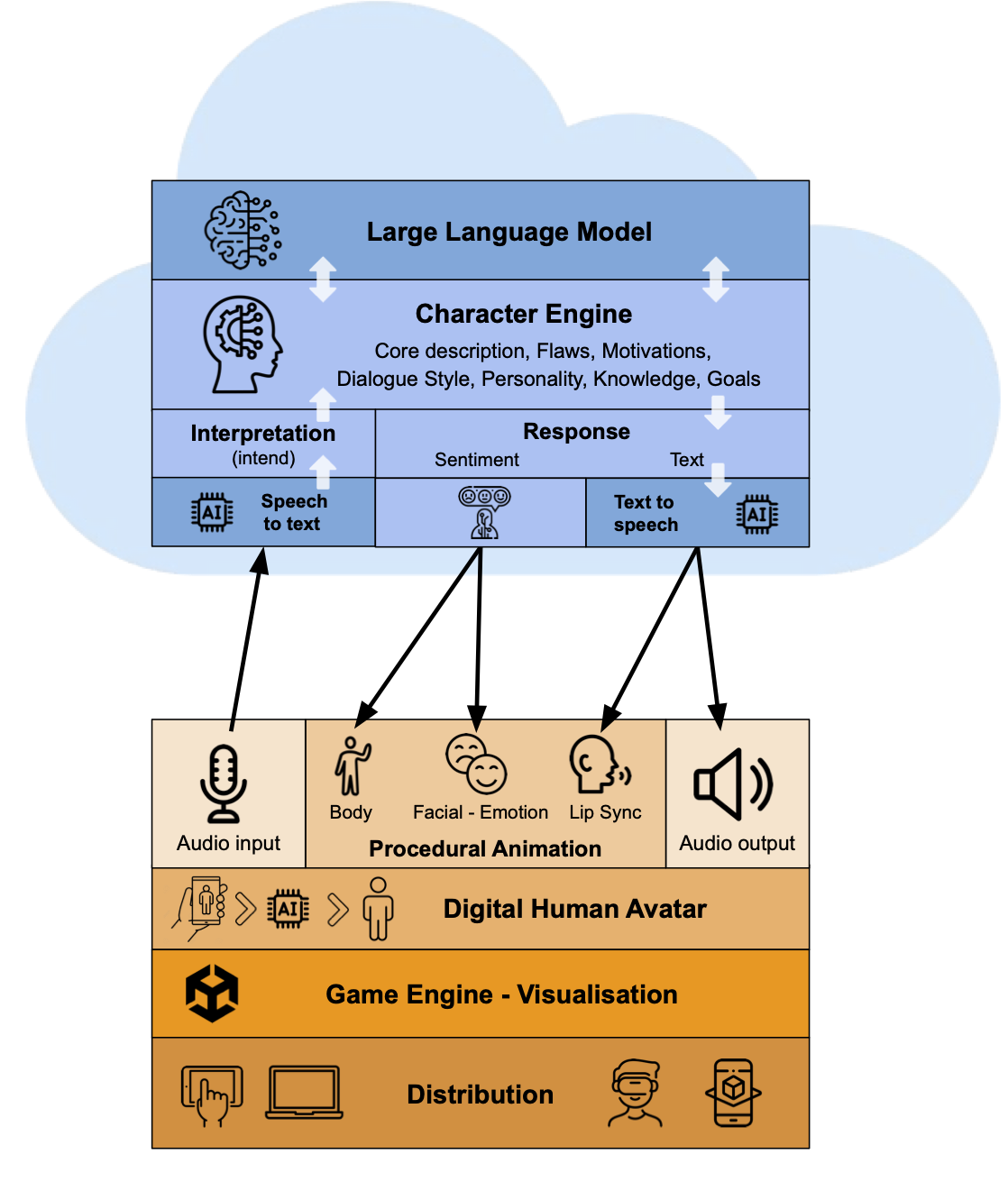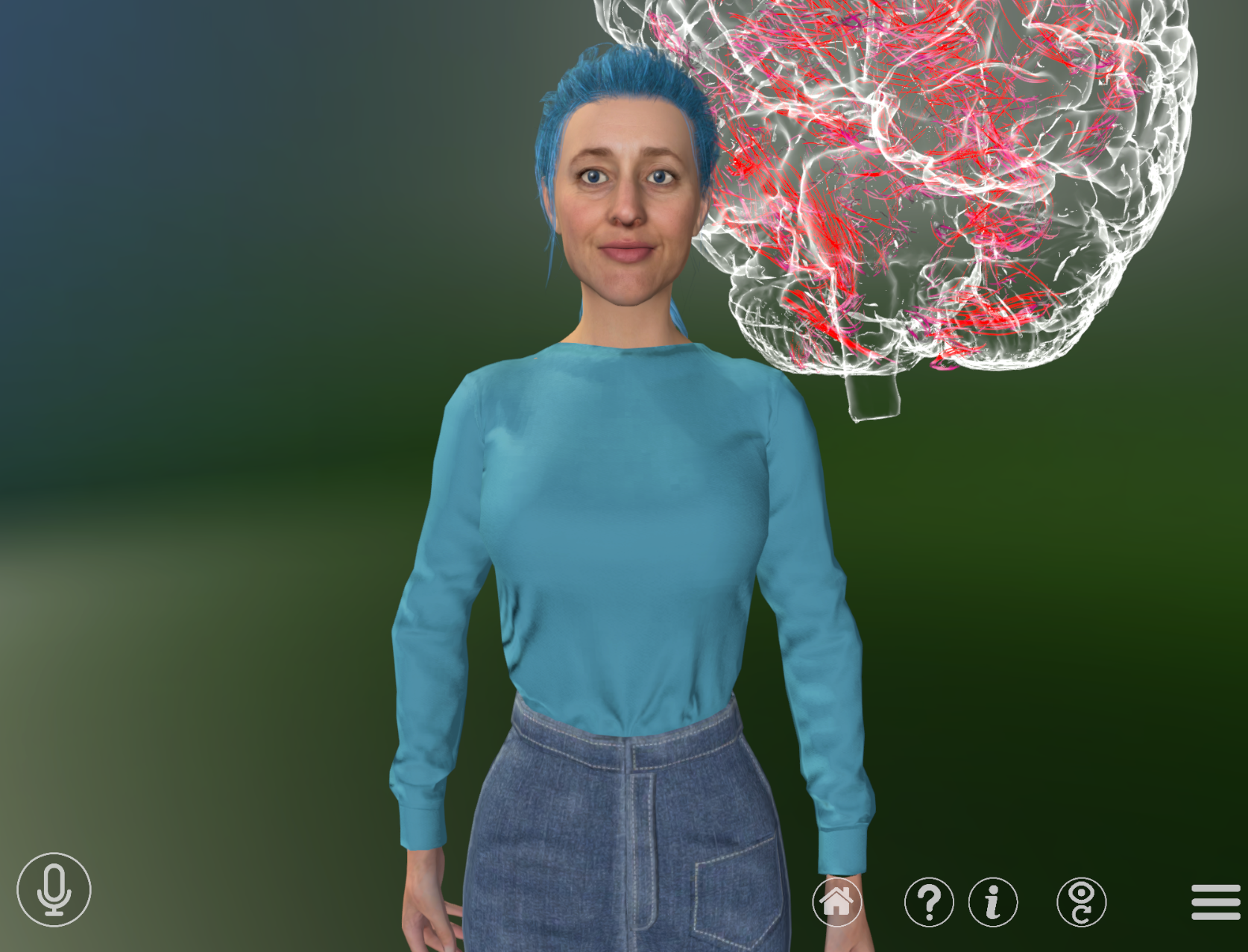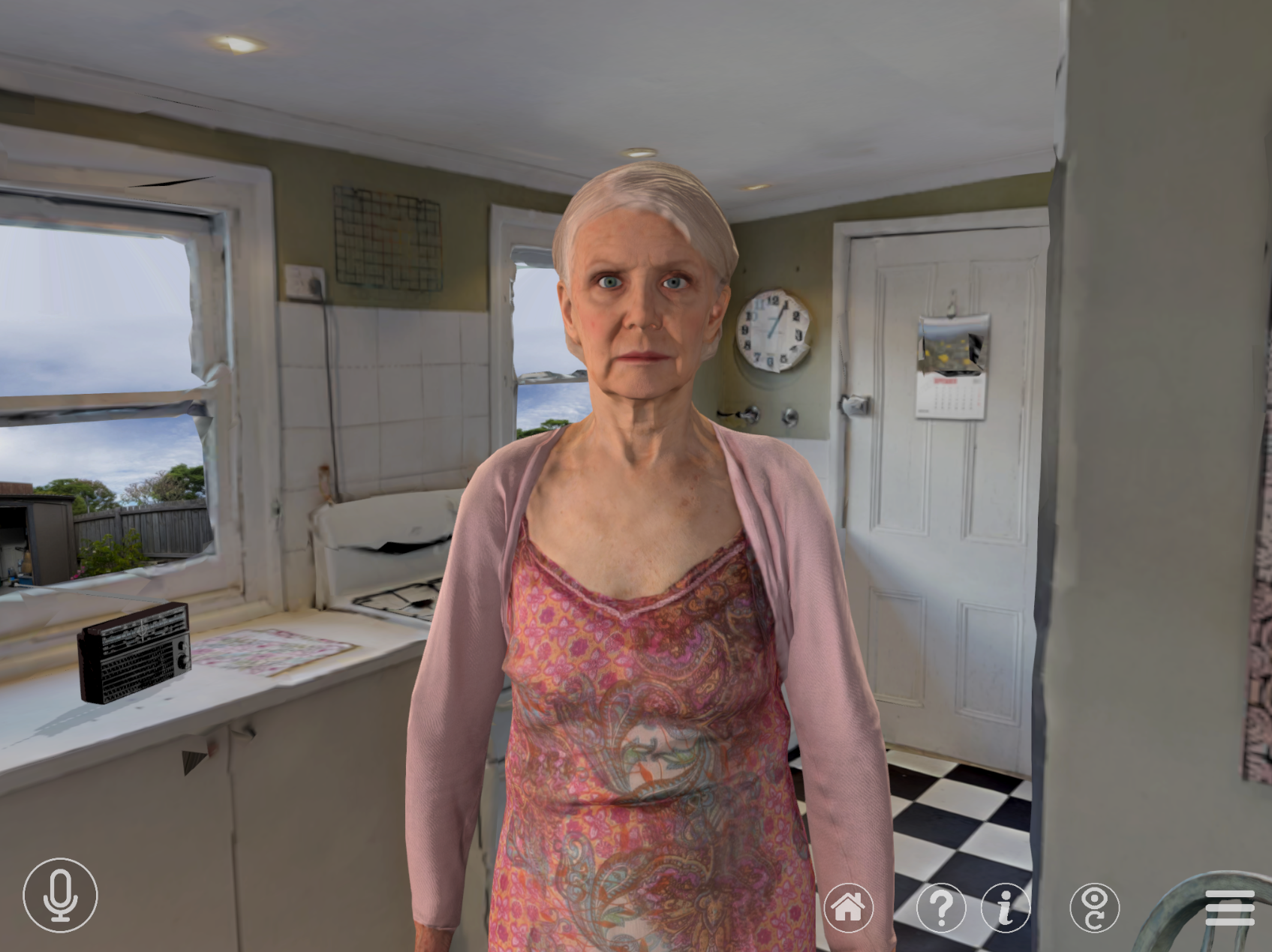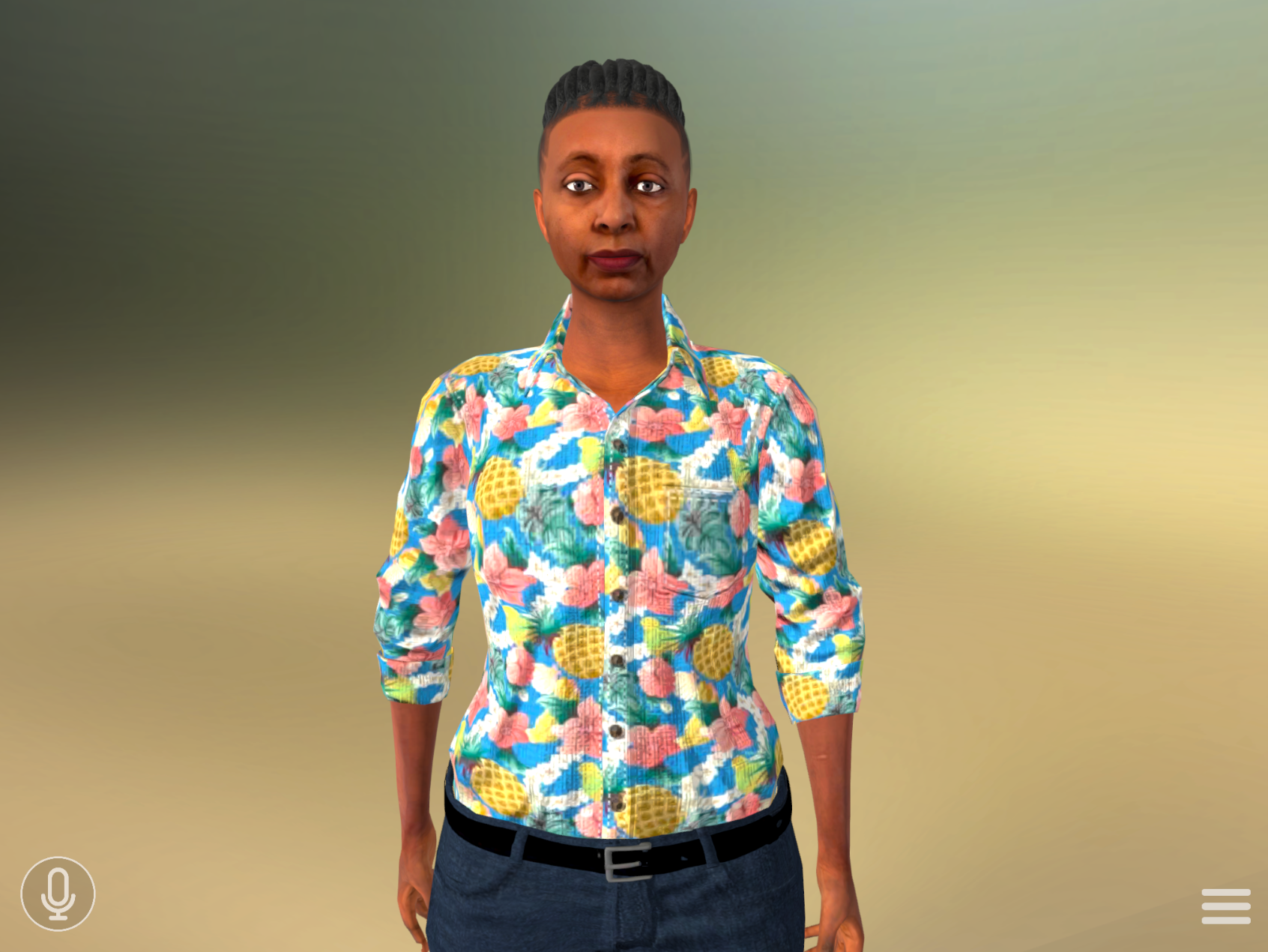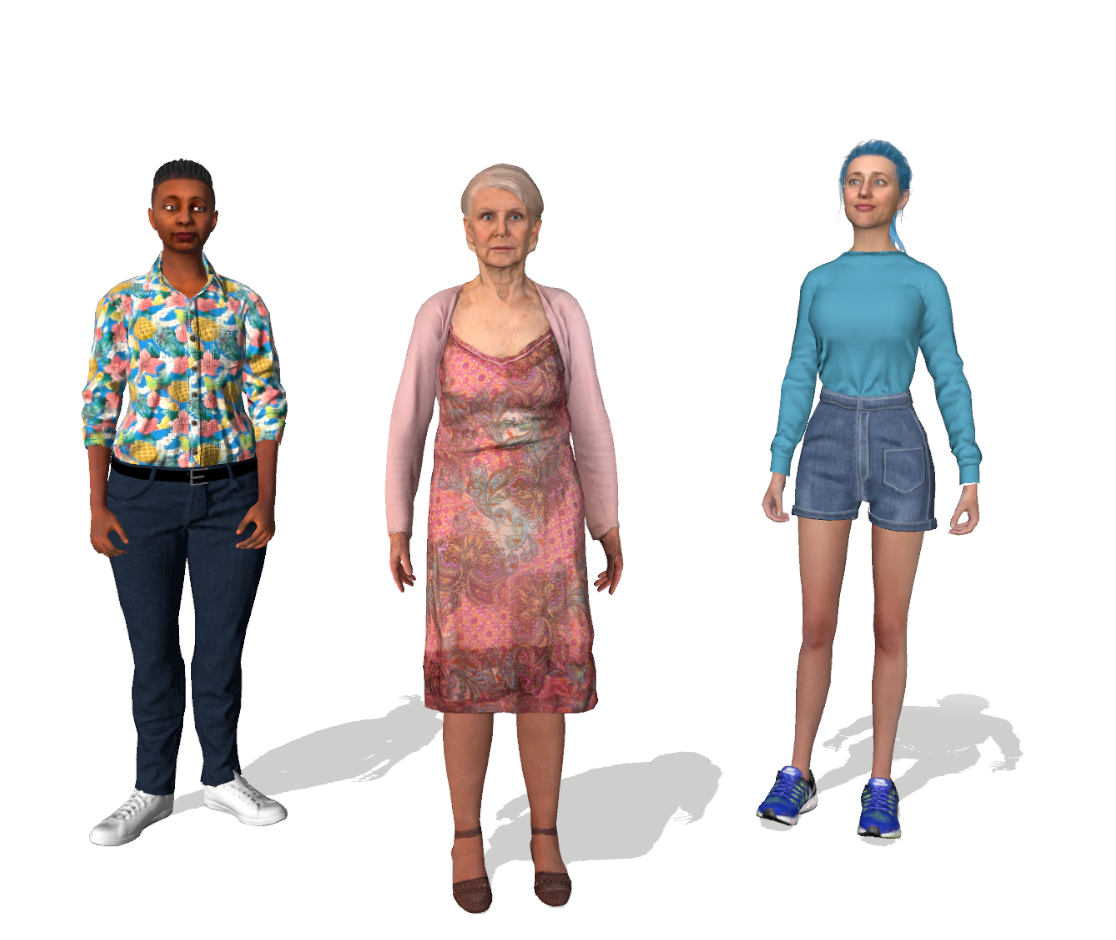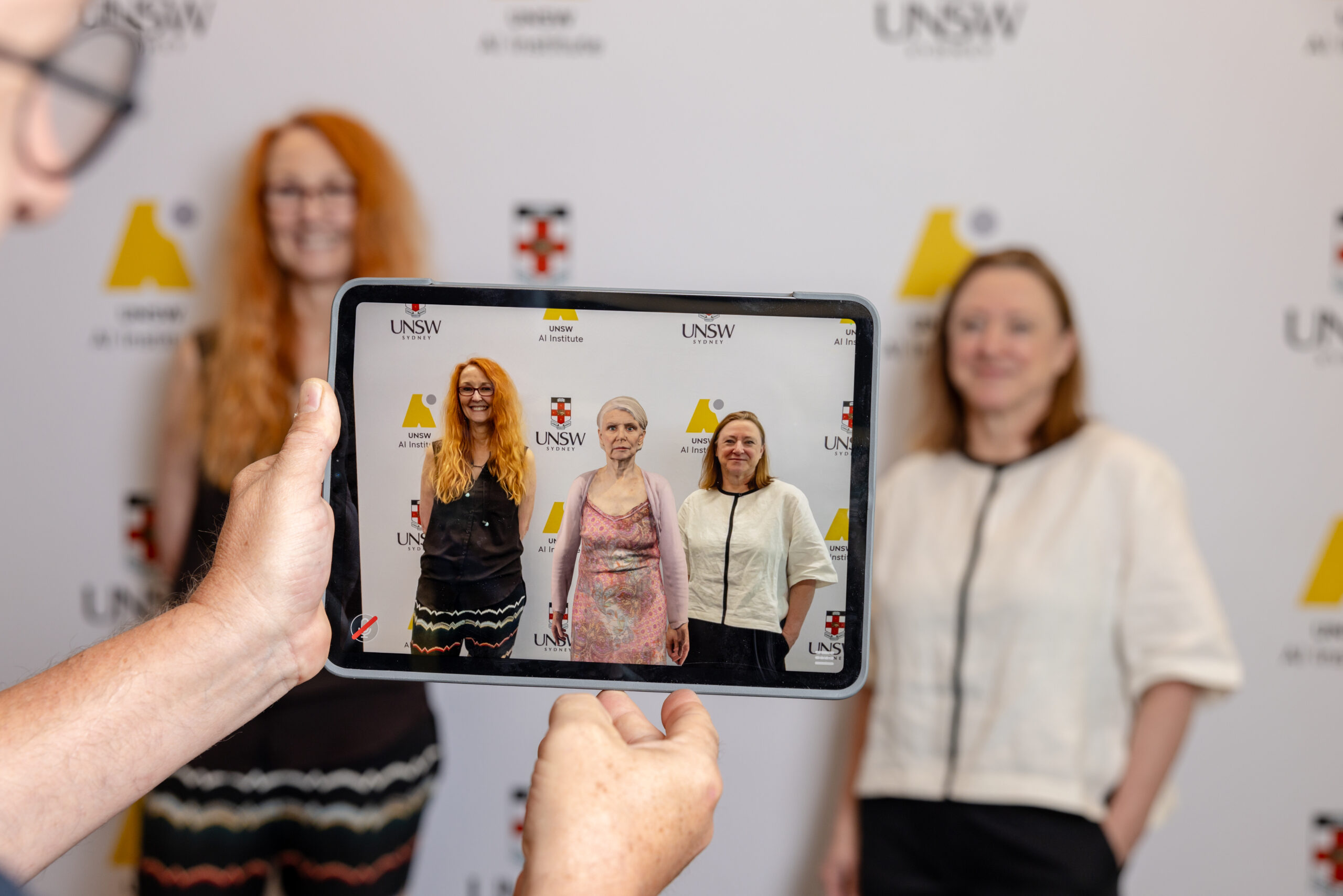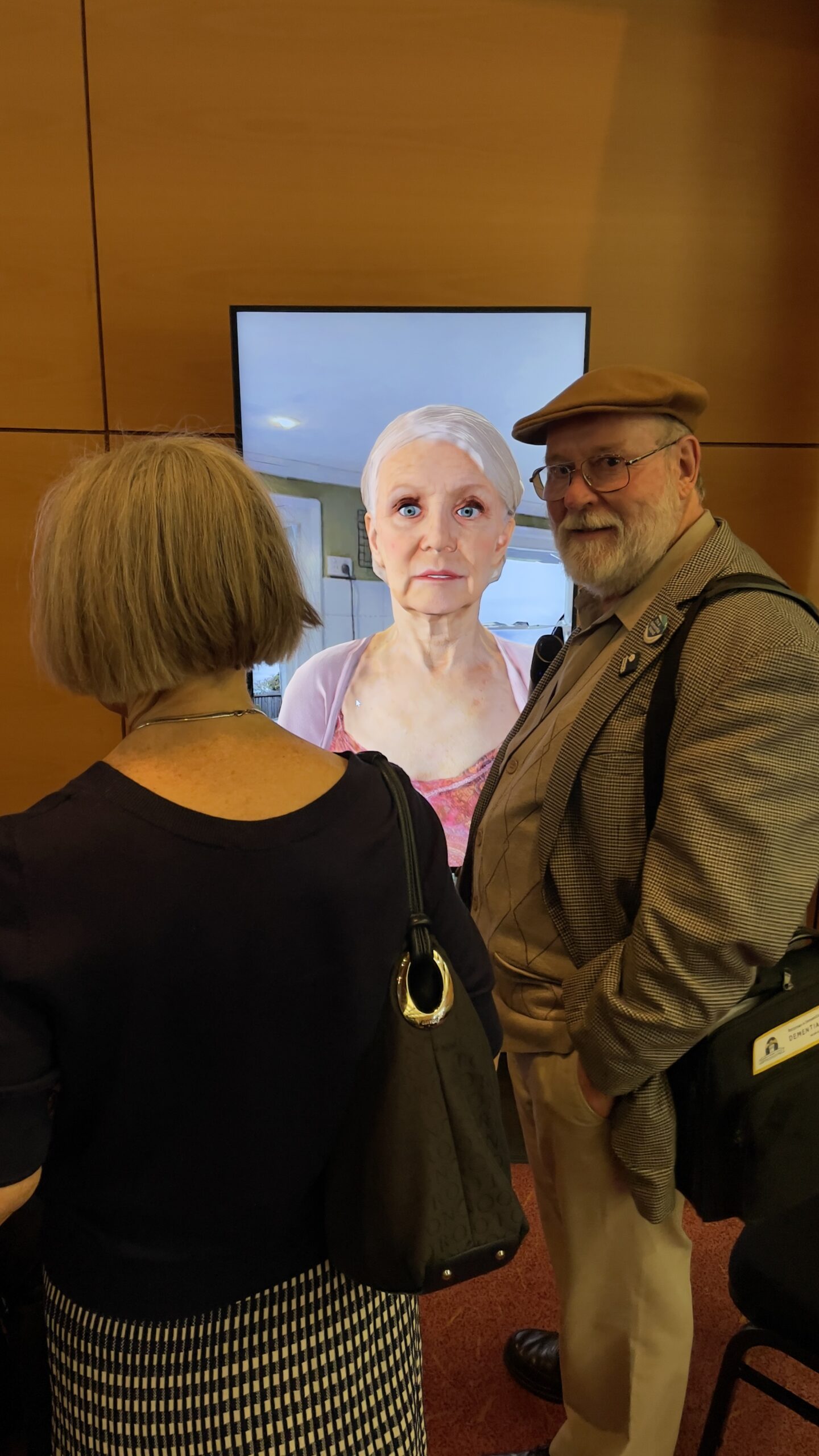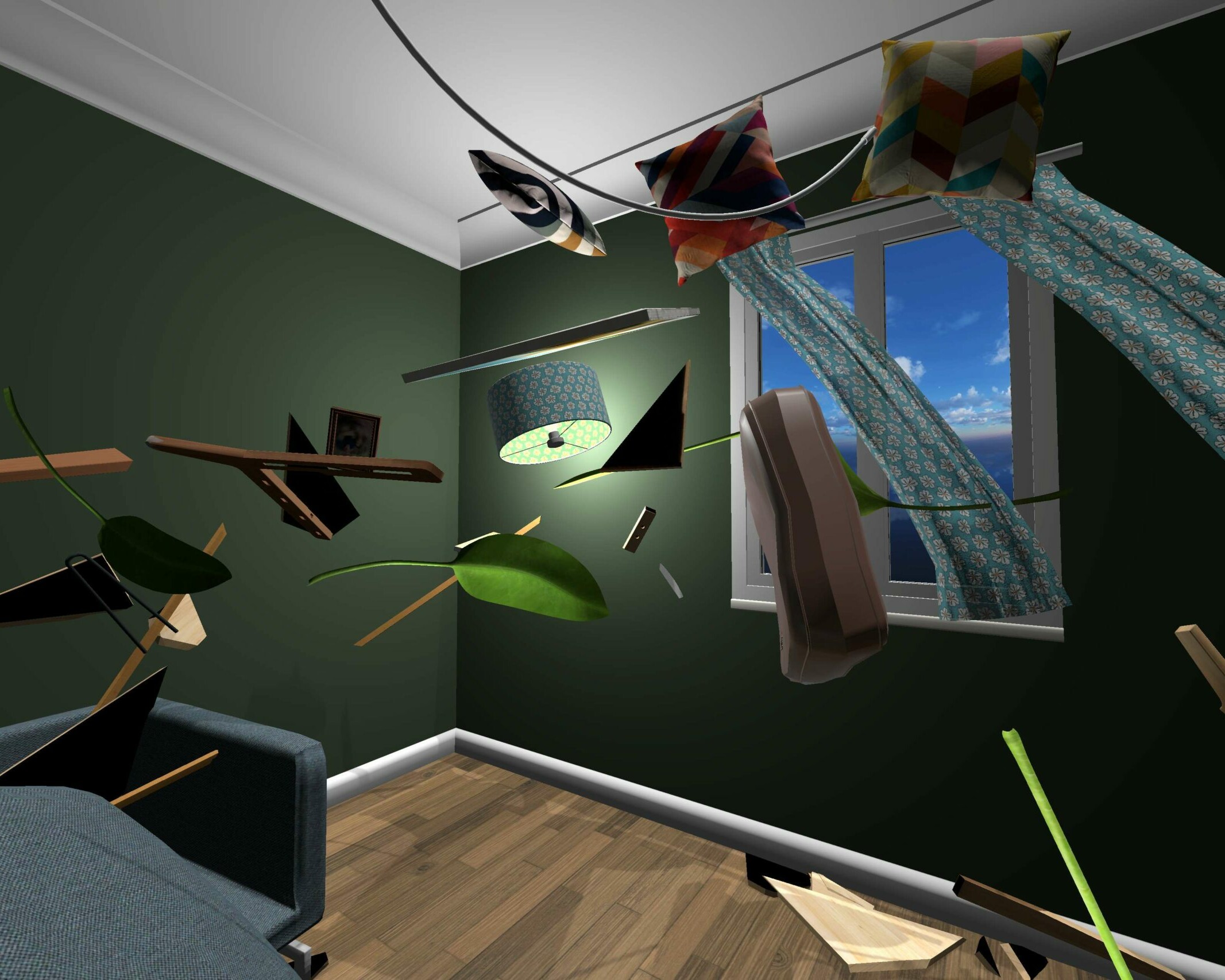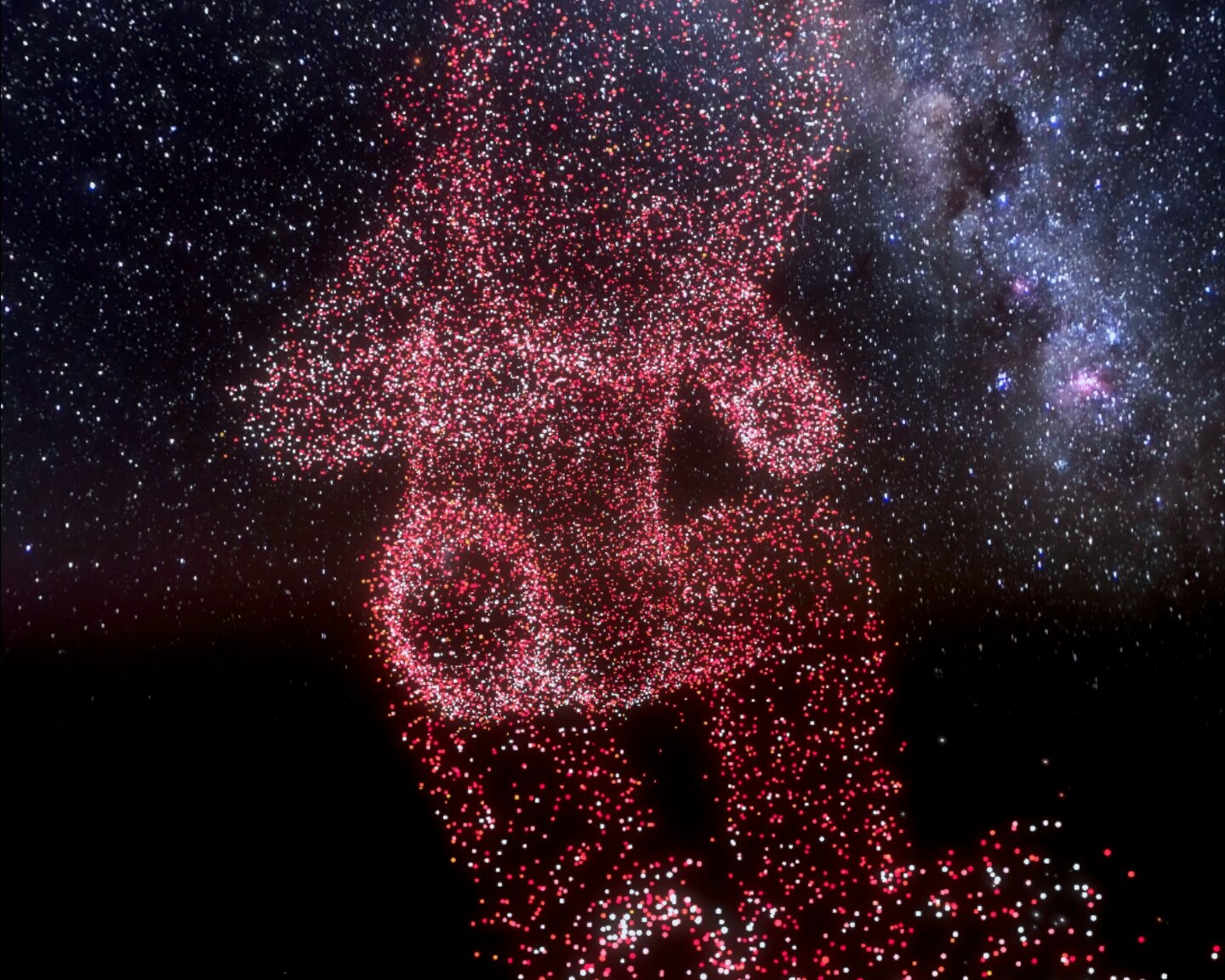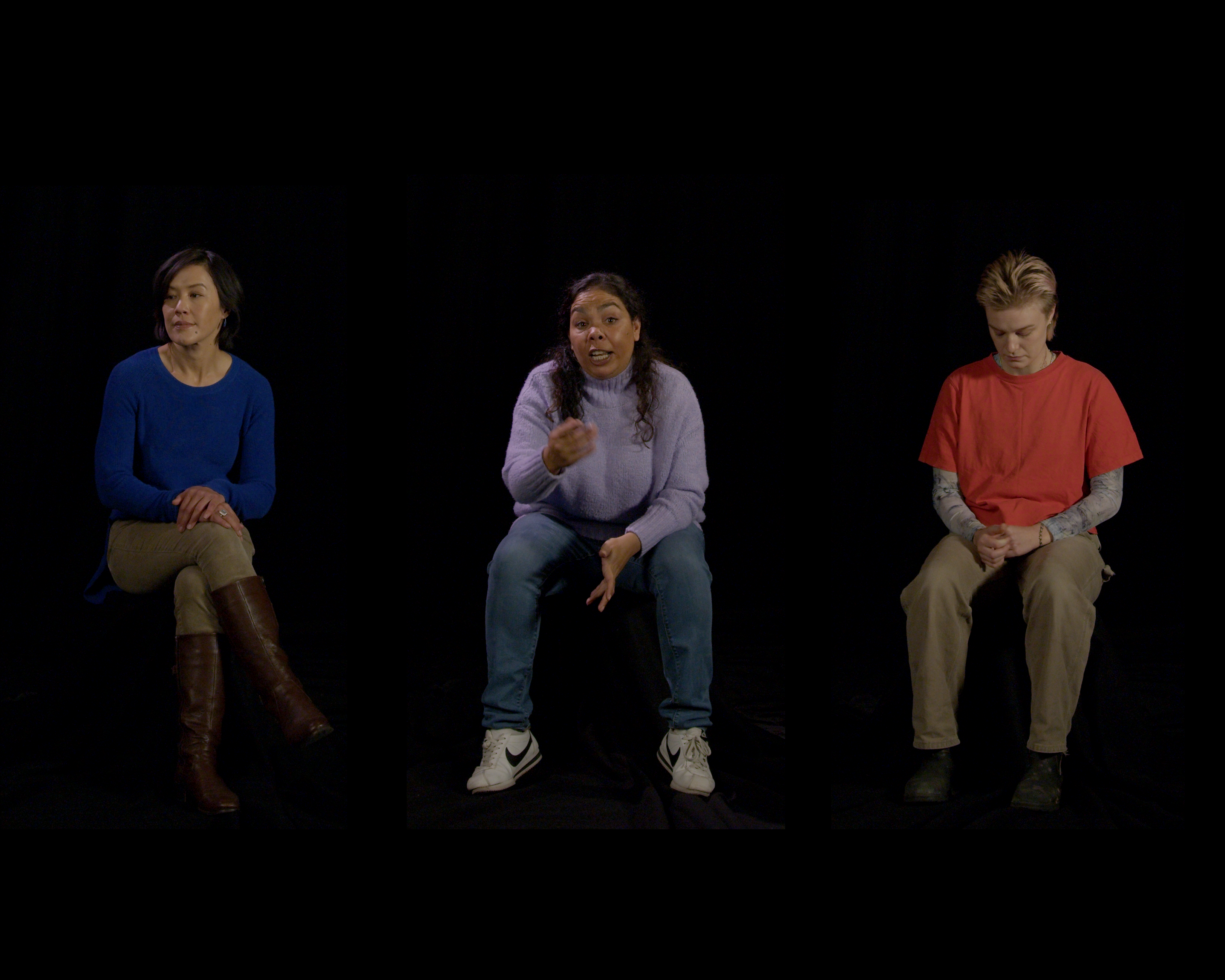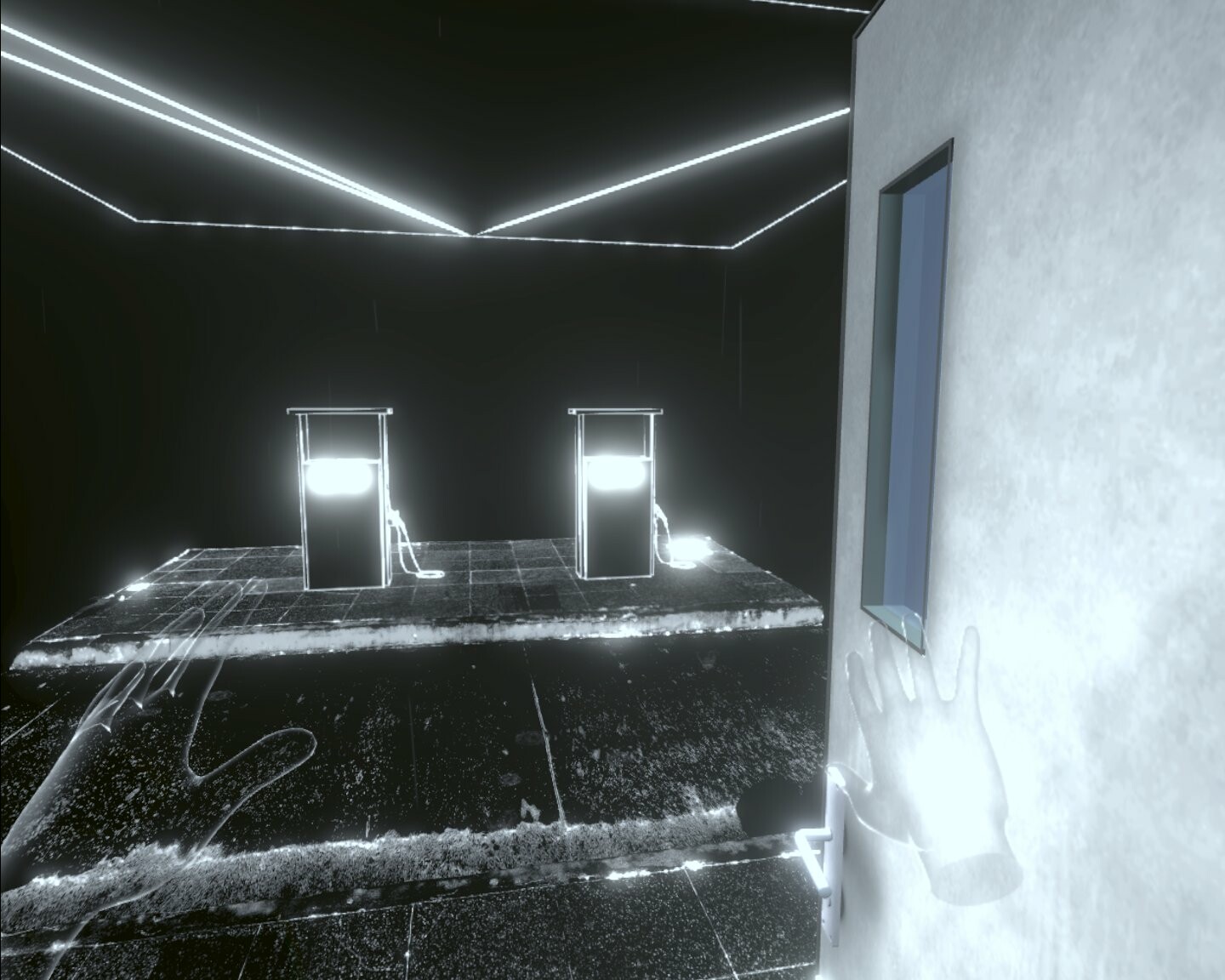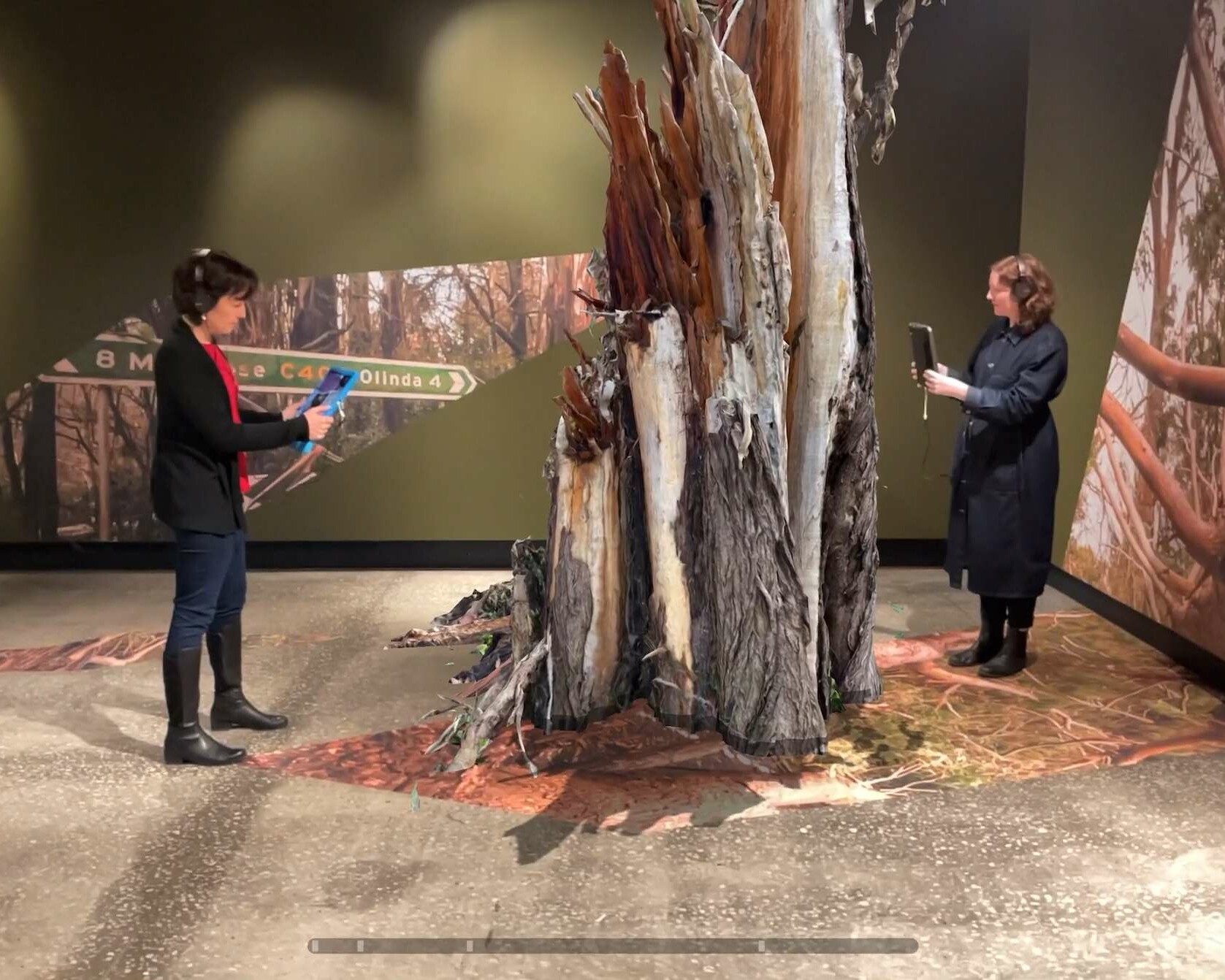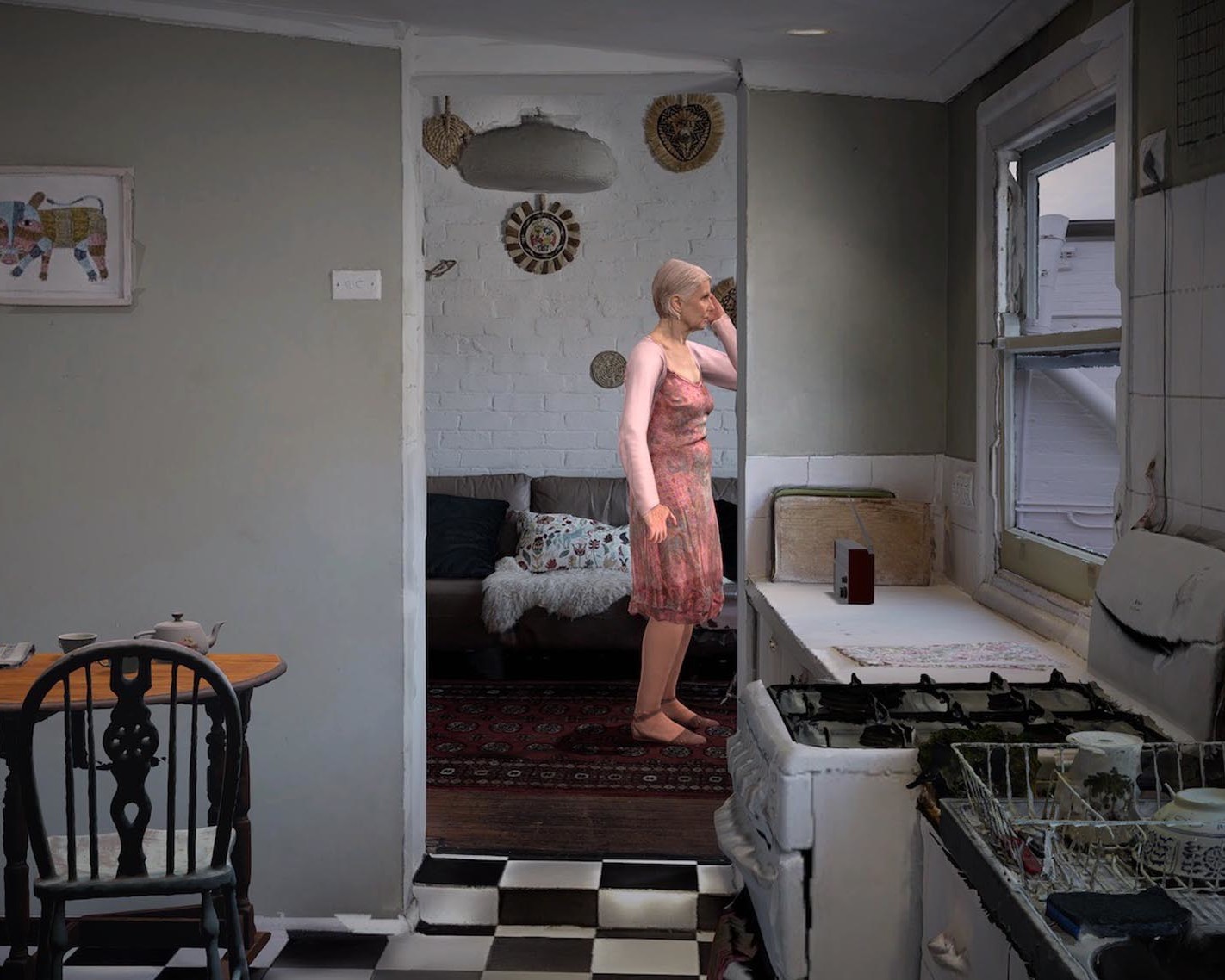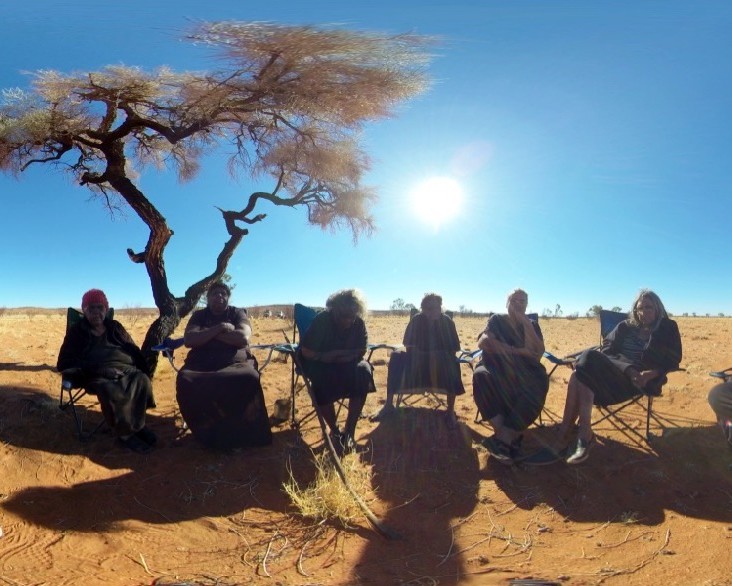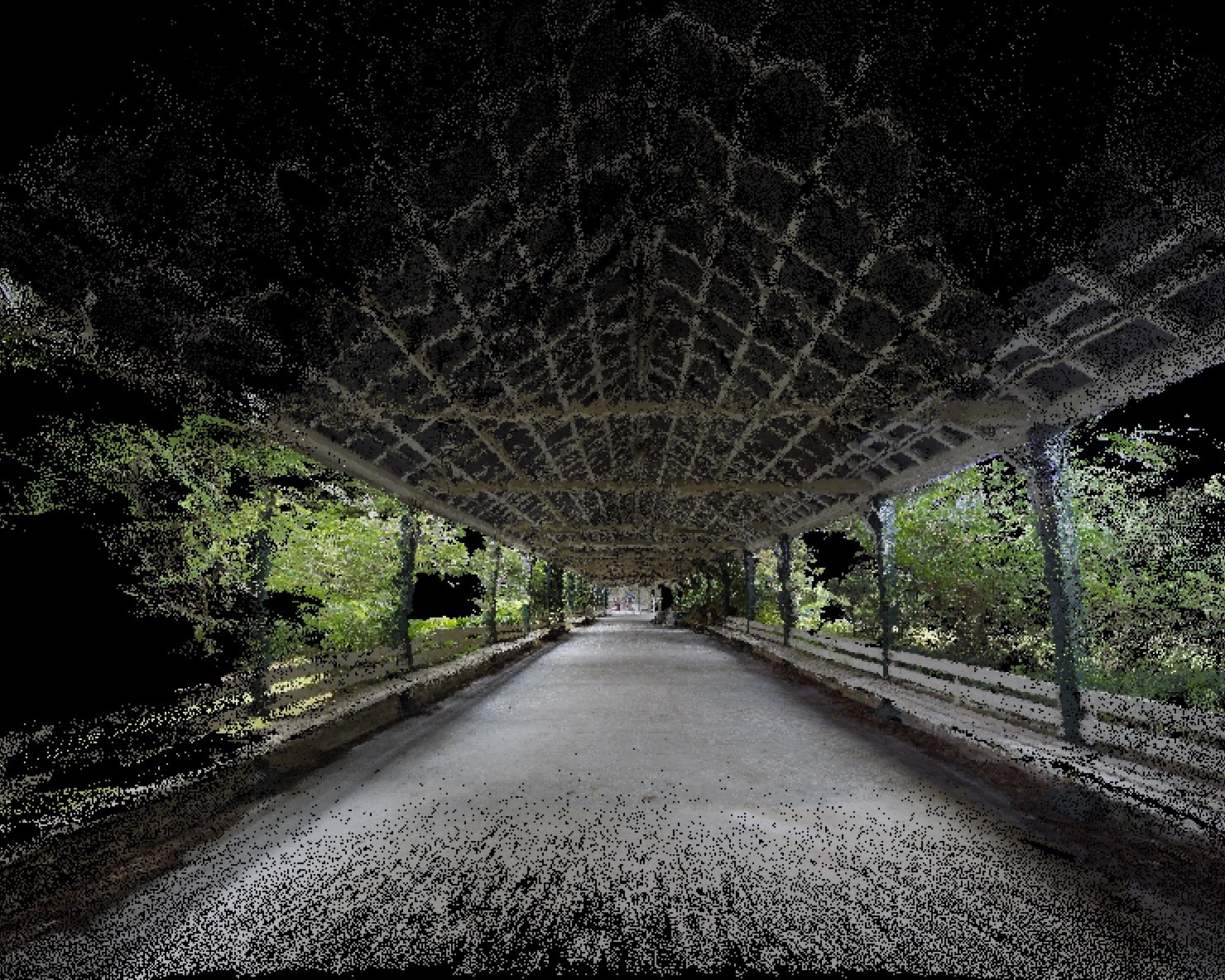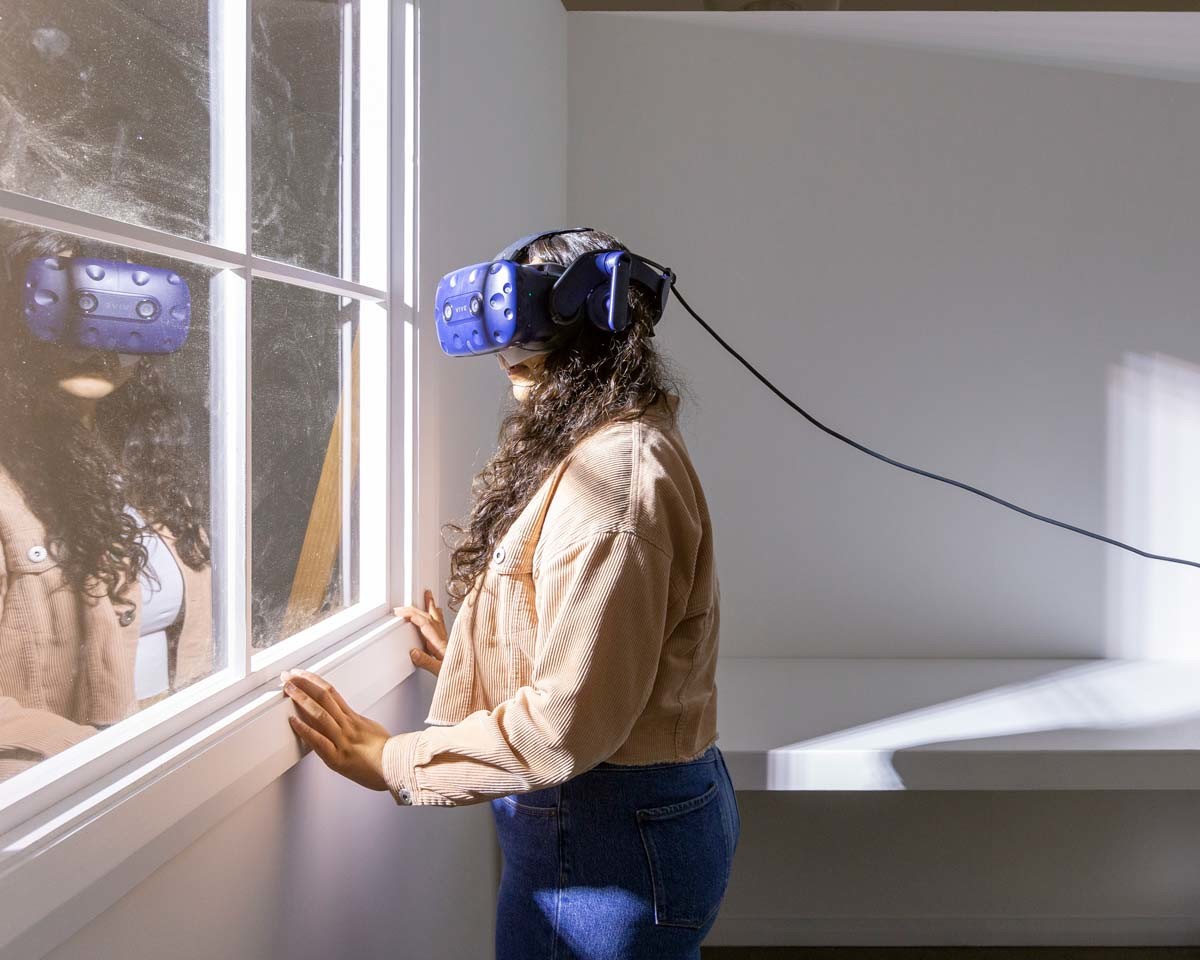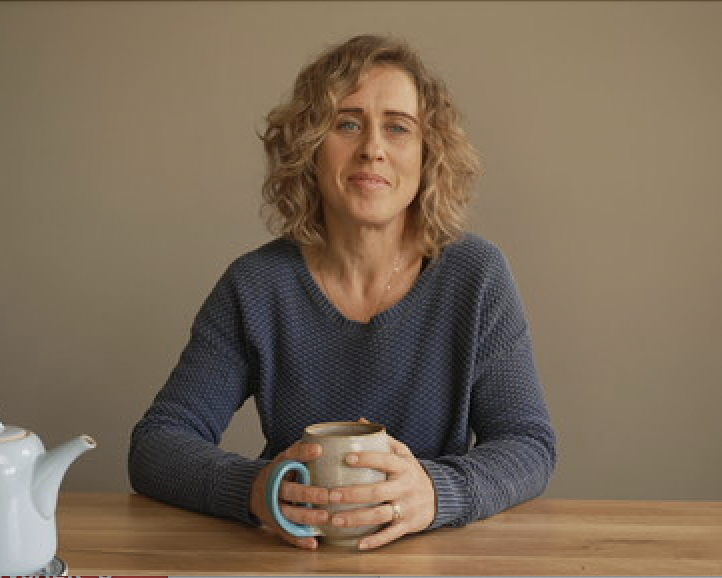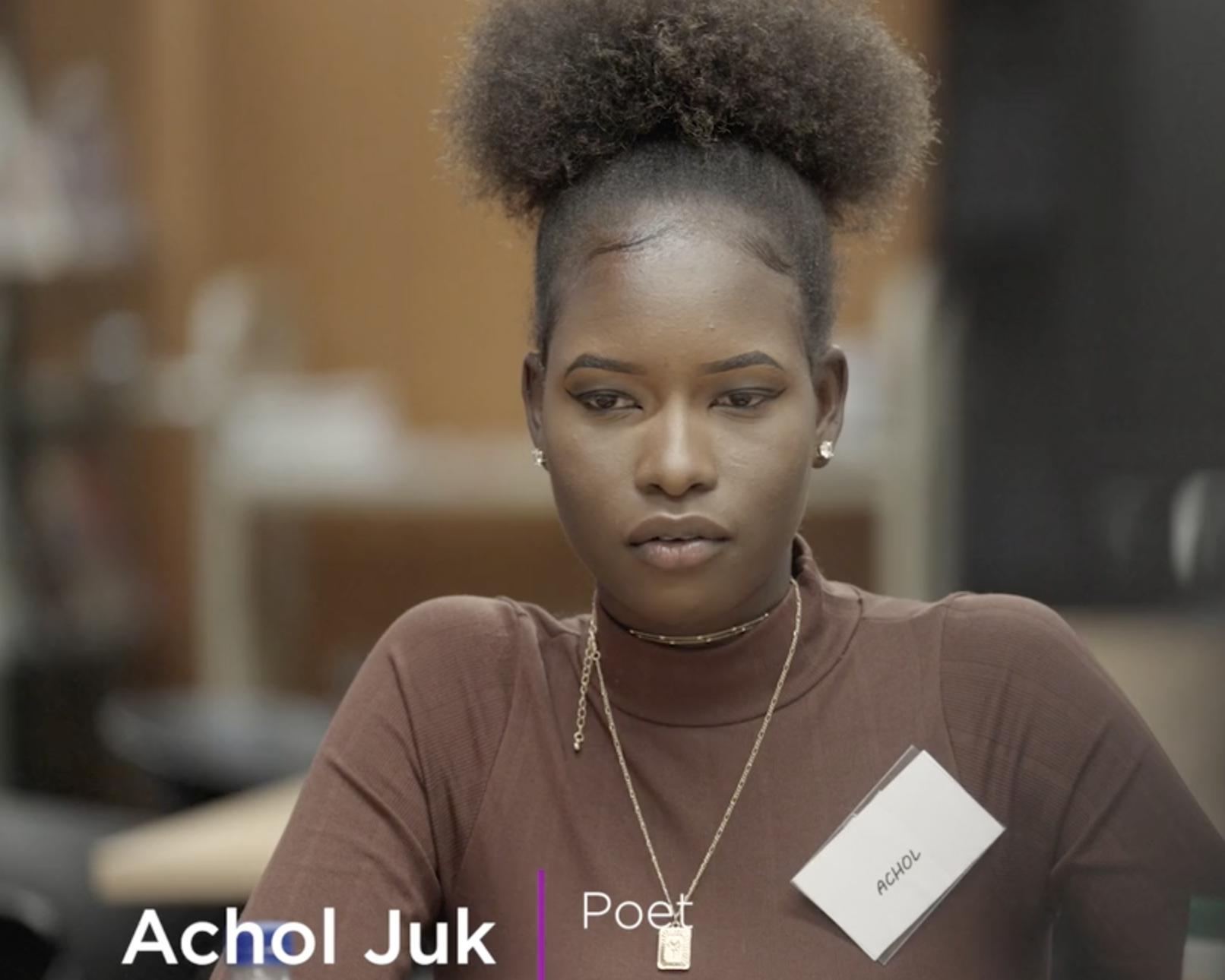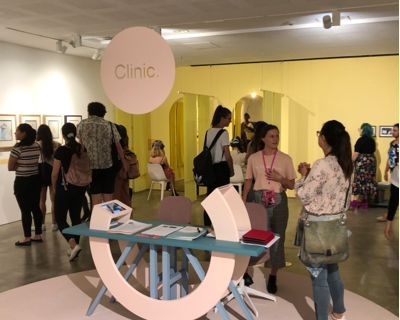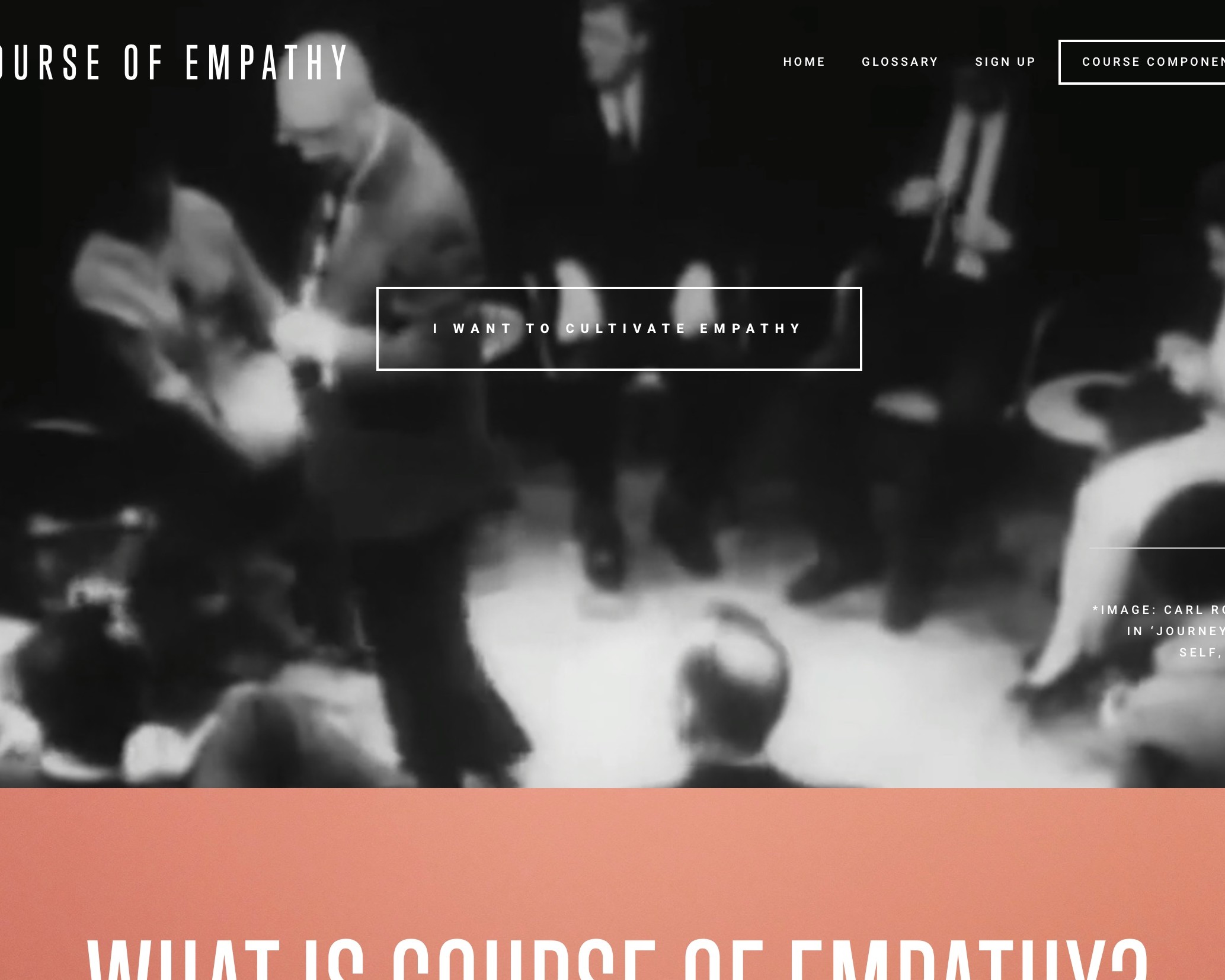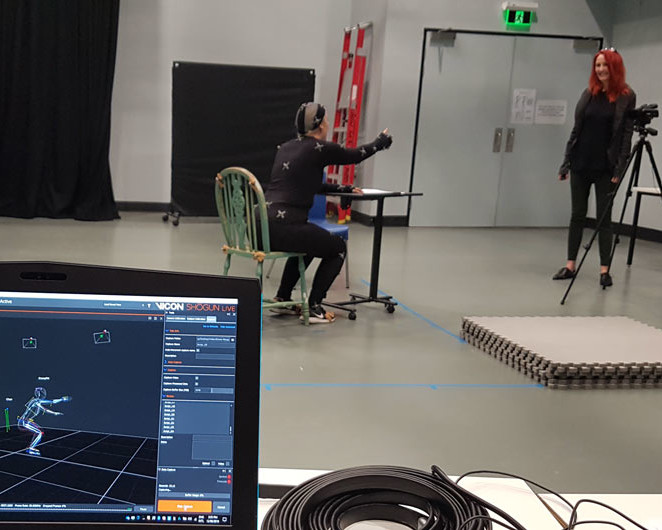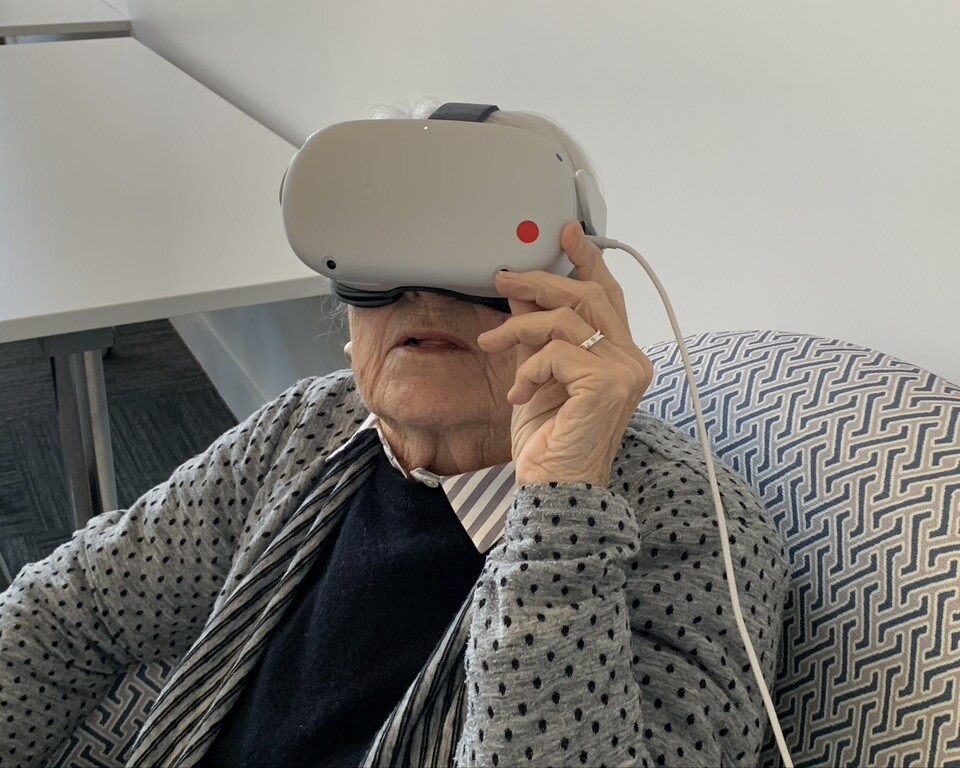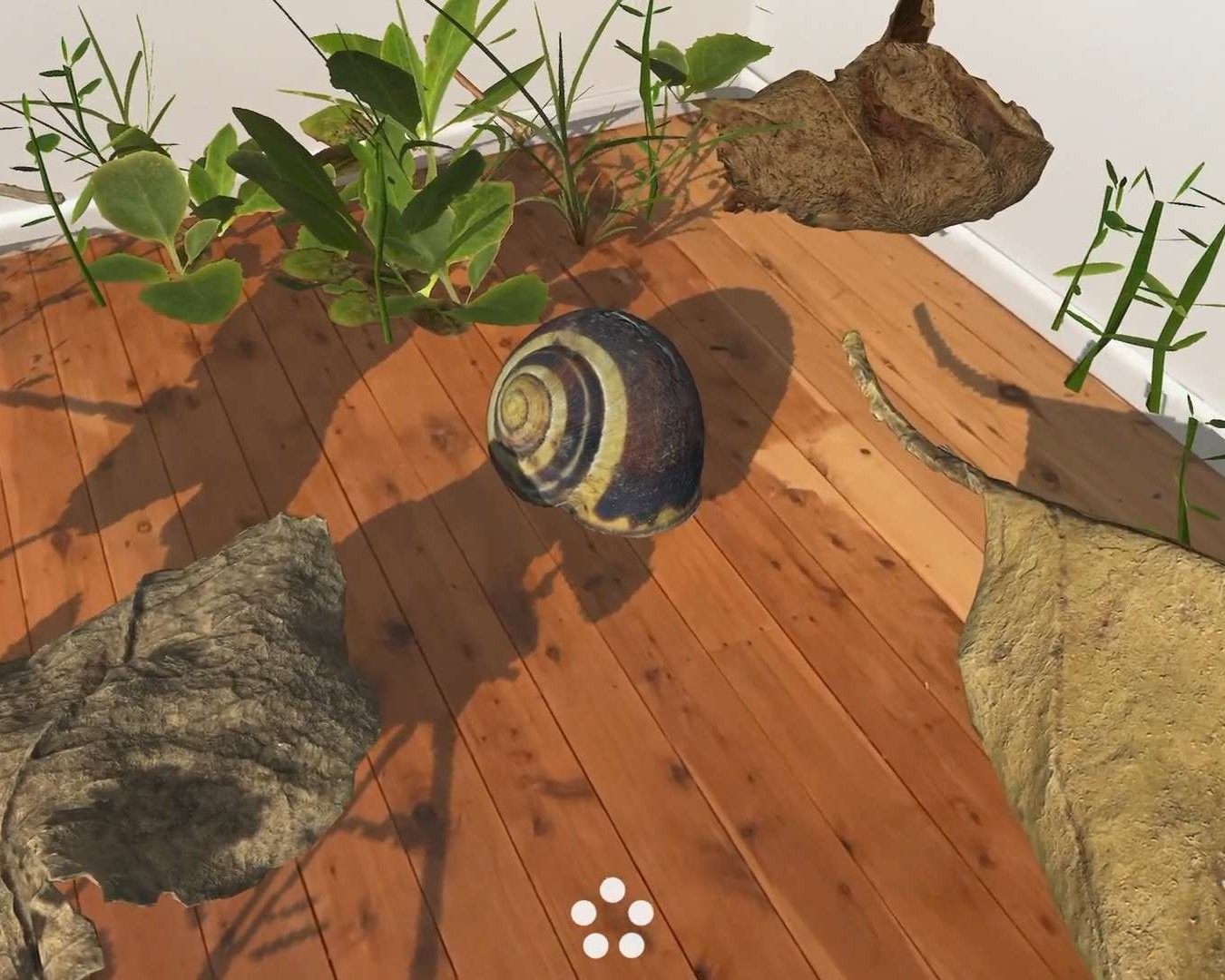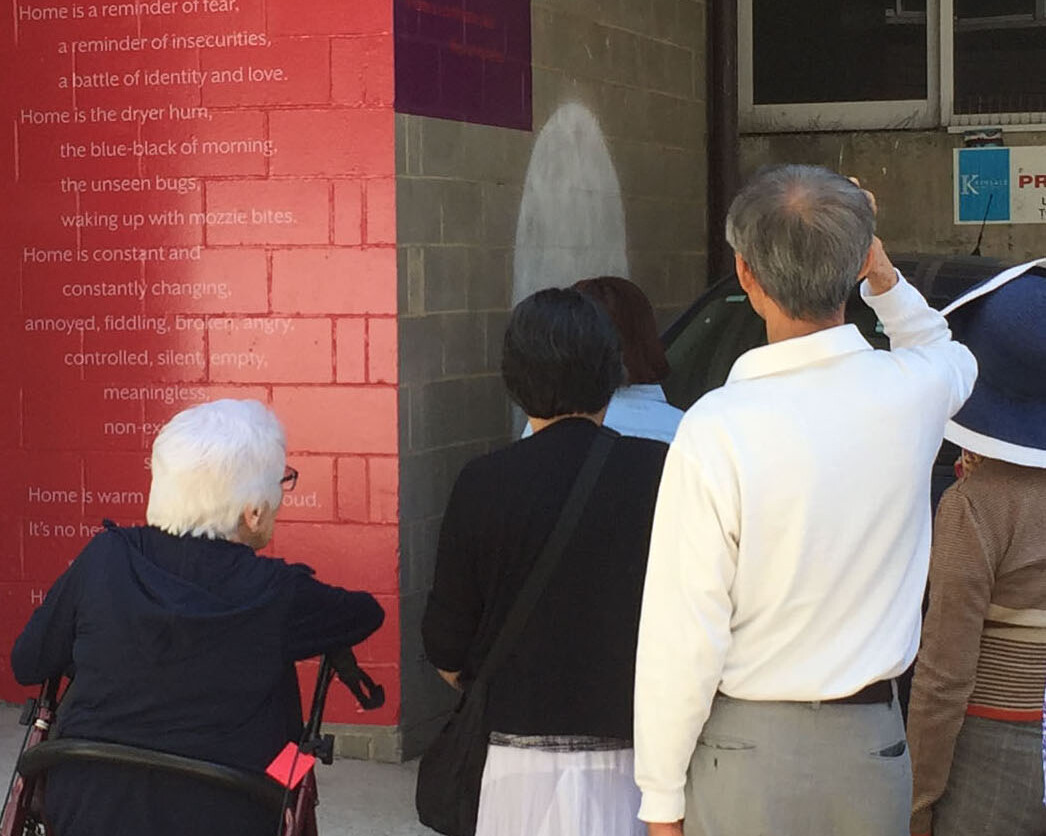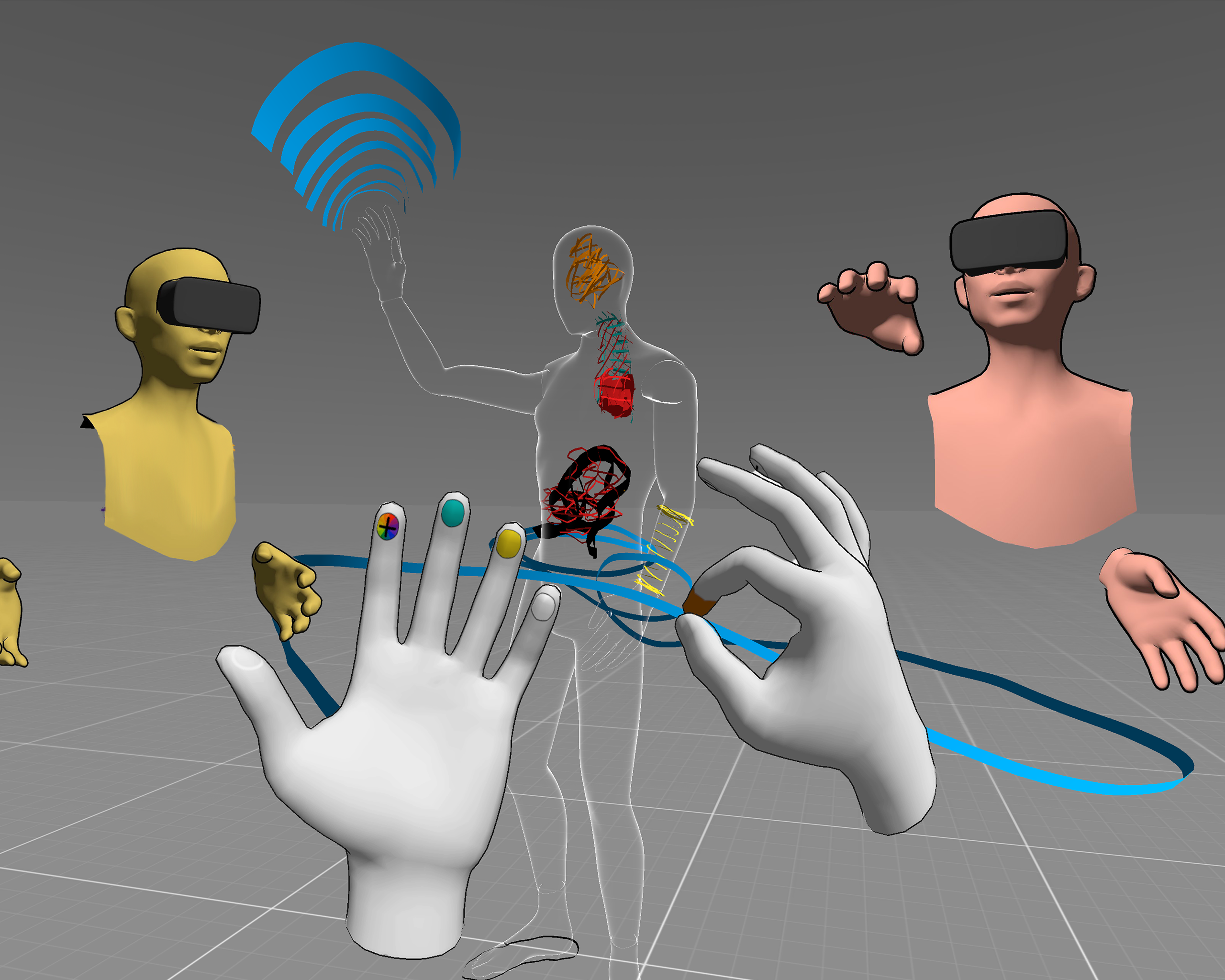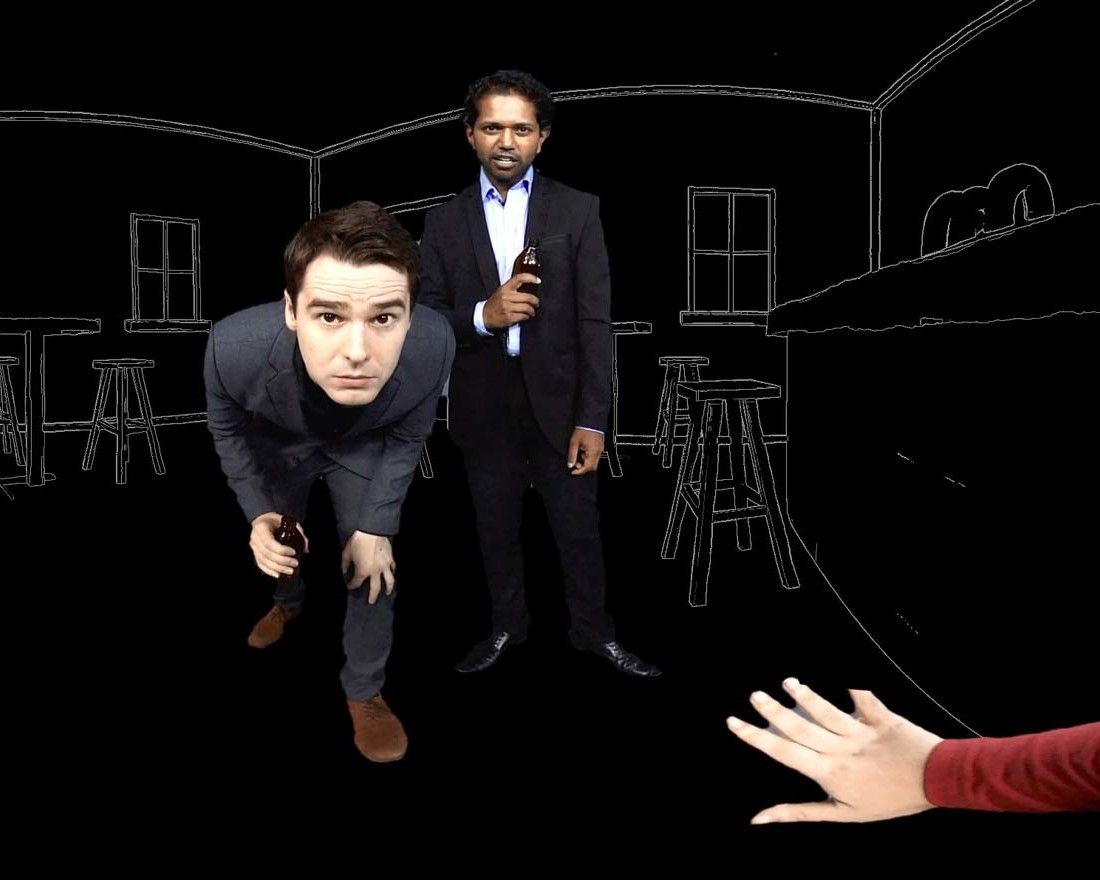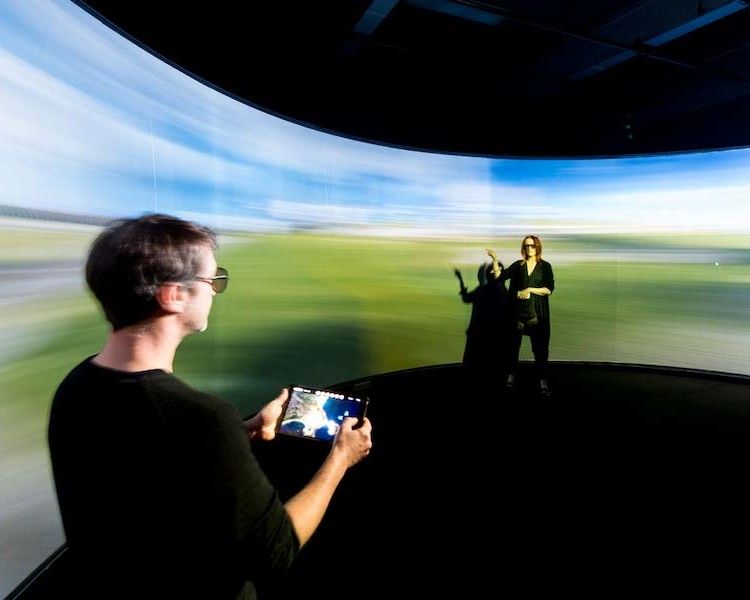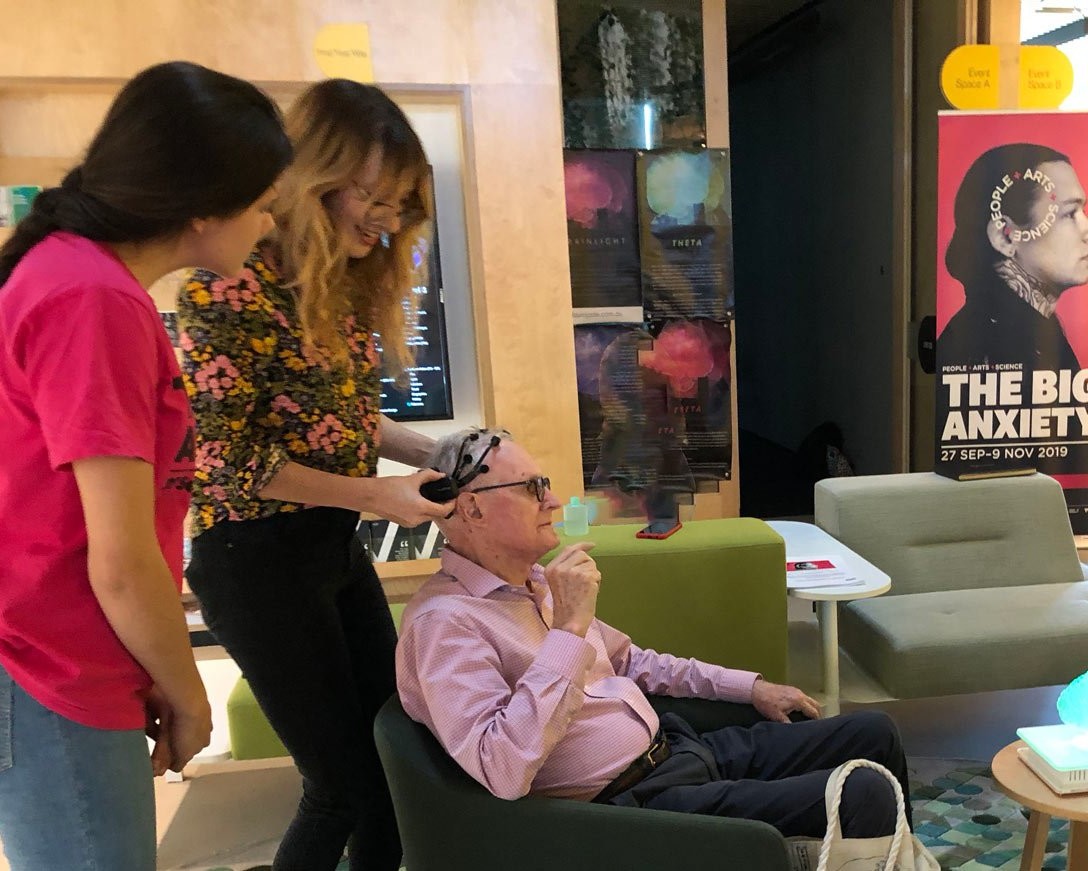Projects
AI Viv and Friends
Contributors
Projects
AI Viv and Friends
Contributors
The ARC Laureate felt Experience & Empathy Lab [fEEL] has developed a suite of artificially intelligent [AI] digital companions using innovative ‘bottom up’ participatory design approaches with people with lived experience of dementia and other neurodegenerative conditions.
Our aim is to develop characters that can provide meaningful companionship and emotional support, as well as experiential learning opportunities. To do this we shape characters from the data of lived experience, drawing on extensive engagements with participants.
Characters may be viewed on life-sized screens (to create a sense of presence) or on a range of smaller devices. They are currently deployed in aged care residential facilities in Australia as well as in exhibition/education contexts.
The character ‘Viv’ was initially fashioned from verbatim scripts generated with five women diagnosed with vascular dementia. Viv experiences auditory and visual hallucinations but has developed strategies for managing, reality-testing and/or befriending hallucinated phenomena. Depending on where she is deployed (and her different user models), Viv resides either in a residential care home or at home, where she is visited by caregivers.
In conference contexts, Viv can share her insights from lived experience, promoting empathy and better understanding of the frustrations experienced after diagnosis. She is particularly skilled at helping those who are uncomfortable, judgemental or misinformed. As a peer companion for people living with dementia, Viv has significant potential in terms of her capacity to offer reassurance, orientation, cognitive stimulation, emotional connection and co-regulation. We are currently studying the potential for using such characters to help calm or ‘co-regulate’ people in states of anxiety or stress – particularly in aged-care settings where 1:1 care may be limited.
Masters student Sally McKay has developed a prototype AI character, Sophie, who is gene positive for Huntington’s Disease and is designed to promote Preventive Neurology. Preventive Neurology is the practice of employing risk reduction strategies to delay the onset of symptoms from neurodegenerative conditions. Sophie ultimately has the potential to provide a form of peer support (along with knowledge exchange) to meet the needs of users who may be ambivalent or averse to genetic testing or unmotivated to engage with Preventive Neurology.
More info:
